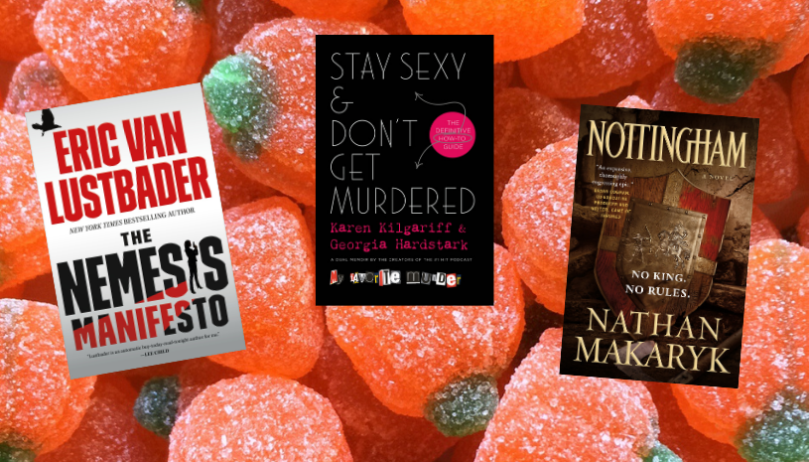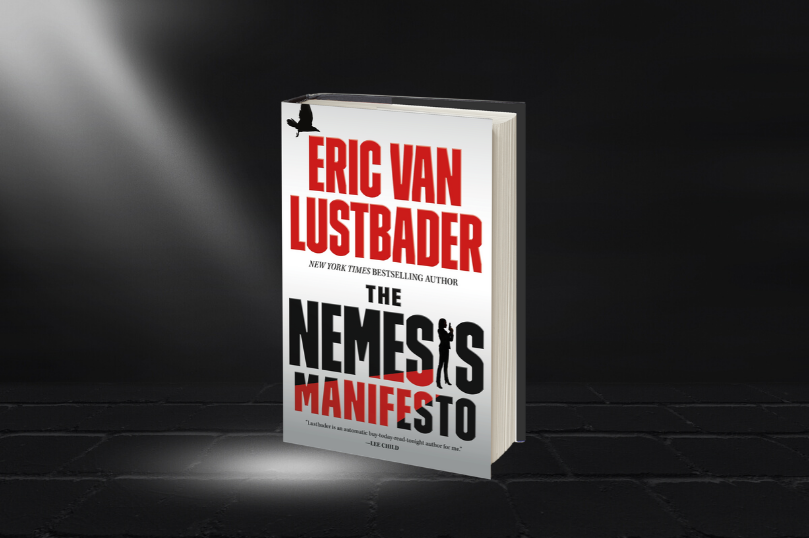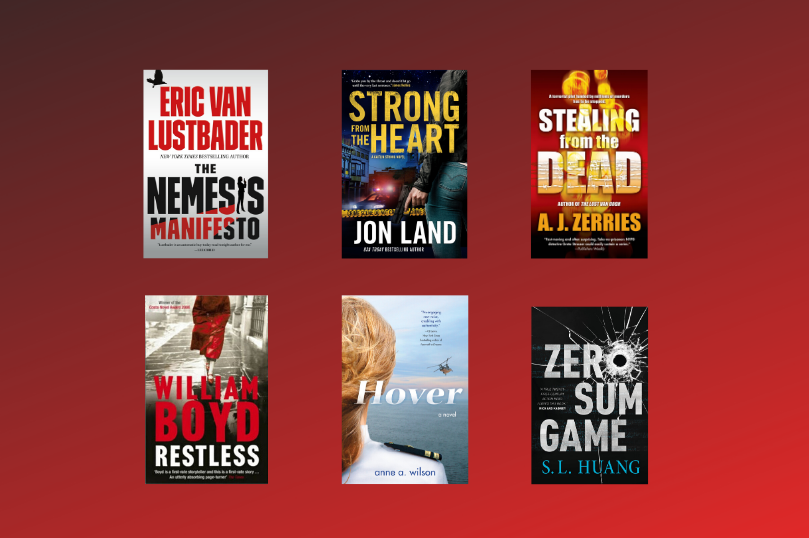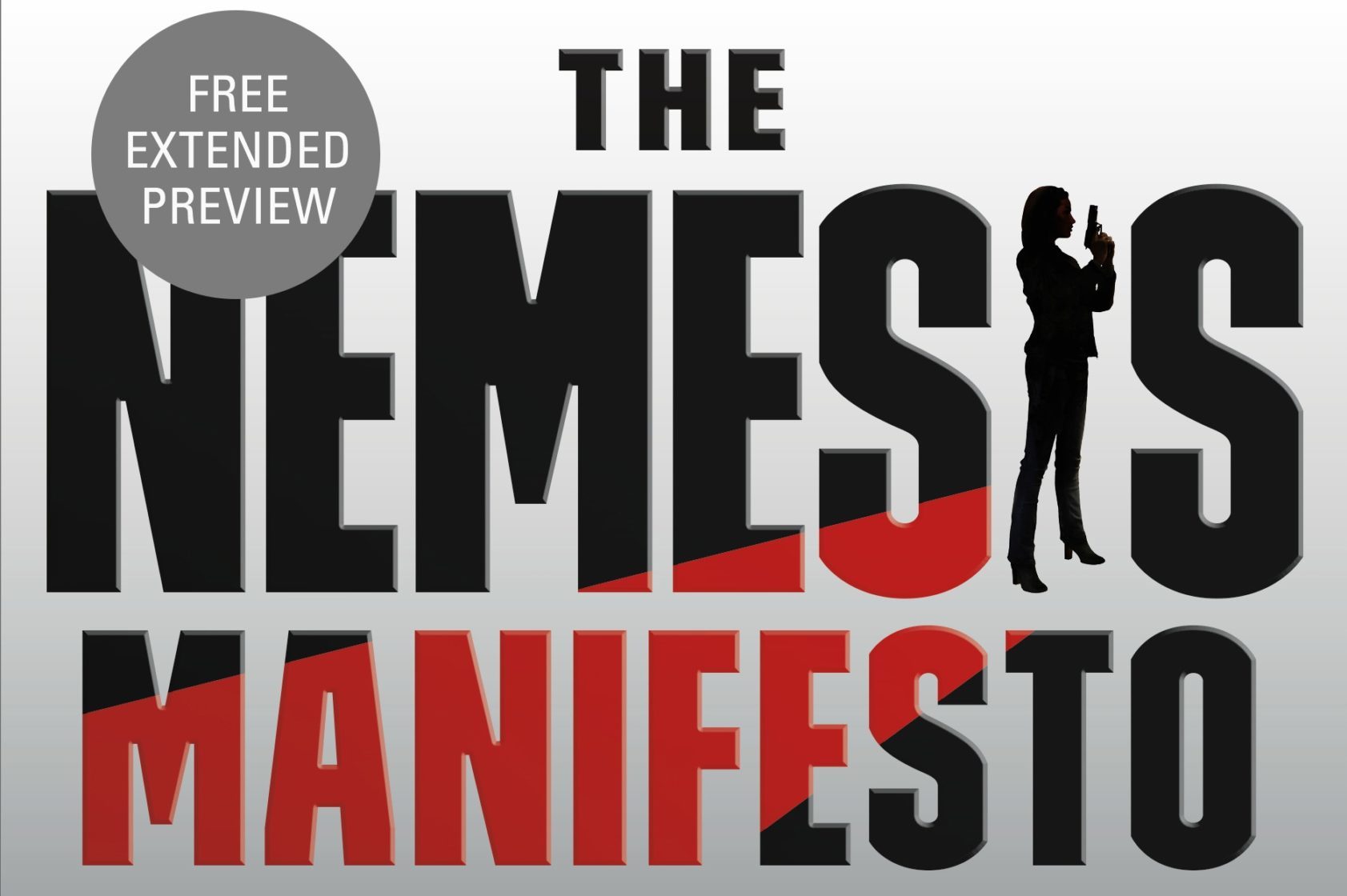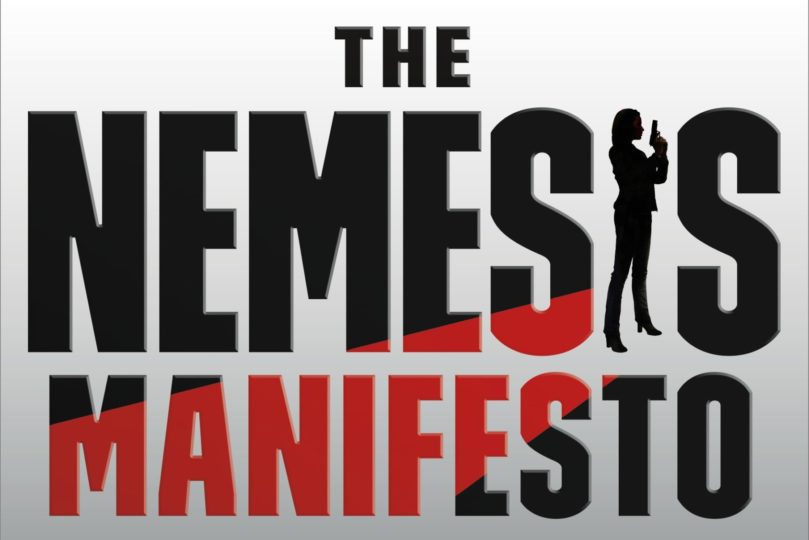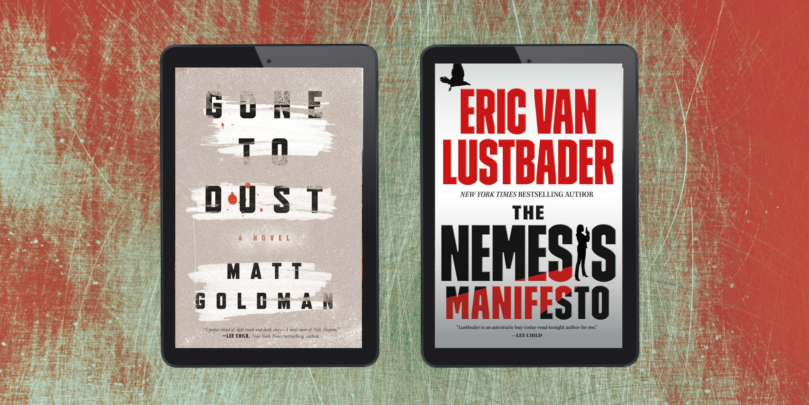
$2.99 eBook Sale: Gone to Dust and The Nemesis Manifesto
The eBook editions of Gone to Dust by Matt Goldman and The Nemesis Manifesto by Eric Van Lustbader are on sale for the month of April for only $2.99 each! About Gone to Dust by Matt Goldman: A brutal crime. The ultimate cover-up. How do you solve a murder with no useable evidence? Private detective…


